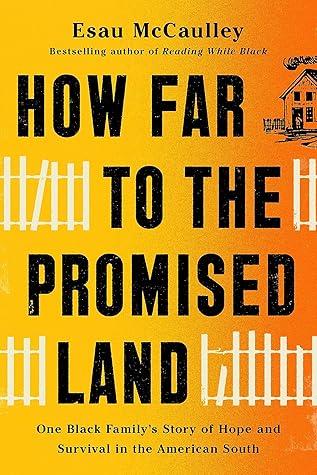More on this book
Community
Kindle Notes & Highlights
Read between
July 2 - July 5, 2024
I understood that the pastor’s job is to find meaning in unfinished lives.
Anyone close to the deceased can tell a fond story about them, but clergy are tasked with something deeper: connecting the life of the deceased to the wider purposes of God.
There is no Black faith that doesn’t wrestle with the problem of evil.
We who have suffered must have some say in how that suffering is interpreted. We won the right, through our scars, to discern the significance of what we endured. My grasp of that significance begins with my experiences of God as a child, on my knees in front of my twin bed, hands clasped and eyes shut tight in prayer, repeating the simplest of prayers: “Help.” In those prayers, God came to me not with logical explanations of the problem of evil but with his presence. When I prayed, a sensation of warmth that began in my chest moved throughout my body. The room seemed less empty. The lack of a
...more
the good we fail to do can mar our lives as much as the harm we inflict on ourselves and others.
Lord, you know that I’m a crazy Black woman. You said that these children are a blessing. I didn’t say that. You said it. And so if you want to leave me here to take care of them, I am okay with that.”
She asked God to be there amid my suffering, not to remove it from me. She knew that there are no easy escapes in life; sometimes the miracle is God-given strength.
A life needs a telos: a picture of the good, the true, and the beautiful compelling enough to give order to the varied parts of the human experience.
The disheveled masses weren’t always noble. We could be as callous as the wealthy.
But evil cannot be wholly explained by the brokenness of the world. Sometimes we participate in the breaking.
We can write laws that reform how police officers interact with the public. Legislation is important. But those laws are enforced by individuals. It is not just the laws that must be reformed but also the habitual suspicion of Black bodies. That suspicion is a matter of societal custom that goes beyond law enforcement, a sickness both legal and spiritual.
turning the church into a place of encounter, a meeting between the power of God and the temptation toward despair that comes from a life of poverty.
but if you stick with God, he’ll stick with you.”
“Make sure that you mention the birth, death, Resurrection, and return of Jesus. Whatever else you get wrong, get Jesus right.”
stories are made by individual persons, not tropes.
Marriage is a collision of two people’s dreams, dysfunctions, histories, and hopes. It always involves a form of letting go and making space. But out of those sacrifices, sometimes something glorious emerges.
All marriages become a third thing, neither one partner’s dream nor the other’s, but a different glory, an ordinary one we made together.
the possibility of goodness in those who do evil is not different in principle from the capability of good people to fail us. Things we separate intellectually into neat categories are messy in real life.
if we give God enough time to do his work. Patience with broken people and broken things is a manifestation of trust in God.
Pilate says that it is fine to speak about truth and falsehood, good and evil, but what does it matter in the face of your impending death? Does not the reality of death render all truth meaningless, leaving only the question of who has power?
This is why the Resurrection of Jesus is important for Christians. The point is not that some man, by some odd twist of fate, defeated death. It is about the meaningfulness of life itself.
Resurrection infuses our lives with meaning. It suggests that who and what we are echoes into eternity. Therefore, it matters who my father was, how he lived, how he died, and what hope we might have for him in the future.
The tax collector in Israel was a villain, but he was also a victim, oppressed by the Roman people. Tax collectors must have shared the same disappointment. They would have known the promise contained in Israel’s cherished scriptures: that when the nation needed saving the most, God would rescue his people. But Israel had fought Rome and lost. Having seen his people conquered and colonized, the tax collector must have wondered, Is God not all-powerful? Or is God’s power irrelevant? Pushing down those questions, the tax collector did what he had to do to make a living.
Christians like to believe that our faith is about people who convert and immediately change their lives. We envision flawless good citizens with well-mown lawns and perfectly behaved children. But life is hard. The road is long and winding, and the path to the promised land is not always clear. Nonetheless, hard lives are beautiful in their own way. Wanderings are instructive in their own right.


